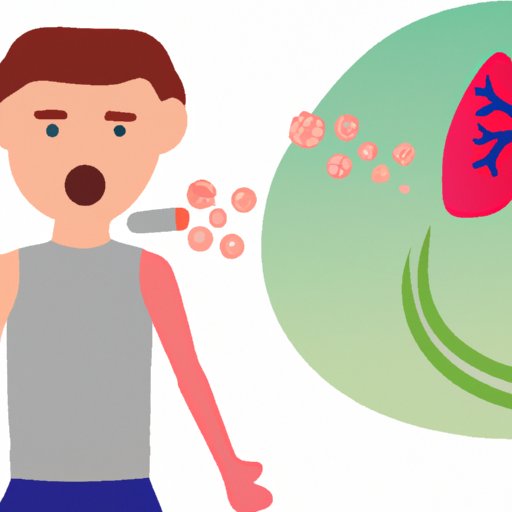Introduction
Having healthy lungs is essential to overall wellness. Healthy lungs allow us to breathe in oxygen and expel carbon dioxide, which helps our bodies function properly. Unfortunately, many people struggle with lung-related issues such as asthma, bronchitis, and COPD. It’s important to take steps to ensure that your lungs remain healthy.
Avoid Smoking and Secondhand Smoke
Smoking is one of the leading causes of lung disease. Cigarette smoke contains thousands of toxic chemicals that can damage the airways and increase the risk of cancer. In addition to smoking cigarettes, other forms of tobacco, such as cigars and pipes, can also have negative effects on your lungs. Additionally, exposure to secondhand smoke from someone else’s cigarette can be just as harmful as smoking yourself.
If you are a smoker, the best thing you can do for your lungs is to quit. There are many resources available to help you quit, including nicotine replacement therapies, counseling, and support groups. If you don’t smoke, it’s important to avoid secondhand smoke as much as possible. This means staying away from people who are smoking, avoiding public places where smoking is allowed, and not allowing anyone to smoke in your home.
Exercise Regularly
Regular exercise can help keep your lungs healthy. When you exercise, your body needs more oxygen, which forces your lungs to work harder. This strengthens the muscles in your chest and increases your lung capacity. Additionally, regular exercise can reduce stress levels, which can help reduce the risk of developing asthma or other respiratory conditions.
There are many types of exercises that can help promote healthy lungs. Aerobic activities, such as walking, jogging, swimming, cycling, and dancing, are all great options. Strength training, such as lifting weights or using resistance bands, can also help strengthen your chest muscles. Finally, yoga and tai chi can help you learn how to control your breath and improve your lung capacity.
Eat a Healthy Diet
Eating a healthy diet is also important for keeping your lungs healthy. Foods rich in antioxidants, such as fruits and vegetables, can help protect your body from free radical damage that can lead to lung disease. Additionally, eating foods high in omega-3 fatty acids, such as salmon and walnuts, can help reduce inflammation in the lungs. Finally, avoiding processed and sugary foods can help reduce your risk of developing asthma or other respiratory conditions.
When creating a healthy diet plan, focus on eating plenty of fruits and vegetables, lean proteins, whole grains, and healthy fats. Limit your intake of processed and sugary foods, and try to include some form of protein at each meal. Additionally, make sure to drink plenty of water throughout the day to stay hydrated.
Get Regular Check-Ups
It’s important to monitor your lung health by getting regular check-ups. These check-ups can help detect any signs of respiratory problems early on, before they become serious. Depending on your age and medical history, you may need to get checked every few years or more frequently. Talk to your doctor about what kind of check-ups you should be getting and how often.
Practice Deep Breathing Exercises
Deep breathing exercises can help improve your lung capacity and reduce stress. When you practice deep breathing, you fill your lungs with oxygen and then slowly exhale, allowing your body to relax. You can practice deep breathing exercises anywhere, anytime. Examples of deep breathing exercises include belly breathing, alternate nostril breathing, and 4-7-8 breathing.
Conclusion
Having healthy lungs is essential for overall wellbeing. To get healthy lungs, it’s important to avoid smoking and secondhand smoke, exercise regularly, eat a healthy diet, get regular check-ups, and practice deep breathing exercises. By taking these steps, you can improve your respiratory health and keep your lungs functioning optimally.
For more information about getting healthy lungs, talk to your doctor or visit the American Lung Association website for helpful resources and information. With the right steps, you can take control of your respiratory health and ensure that your lungs remain healthy and strong.
(Note: Is this article not meeting your expectations? Do you have knowledge or insights to share? Unlock new opportunities and expand your reach by joining our authors team. Click Registration to join us and share your expertise with our readers.)
